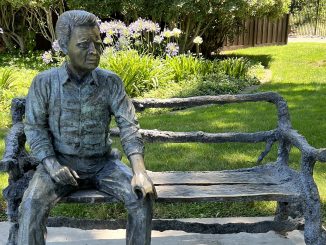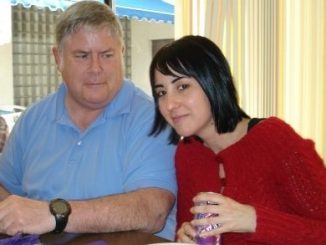
When I think about the Camp Fire’s fifth anniversary, I think about the CN&R. For me, the two are inextricably intertwined.
After the blaze, the paper’s small staff wrote week in and week out about the aftereffects. But we wanted to do more. More scrutiny of PG&E, more clarity from the agencies responsible for recovery, and more attention to the plight of victims.
Early on, the CN&R was on a path to make that happen. In late 2019, we were chosen as a Report for America (RFA) host newsroom. For those unfamiliar, RFA is a nonprofit organization that buoys newsrooms by partially funding reporting positions—splitting the cost the first year.
We could afford to pay our share because we’d already fundraised. Two years before the blaze, we established a special nonprofit fund to pay for enterprise and investigative reporting on complex subjects. Our initial plan was to hire freelance writers, but finding people who were interested in Chico—and had the bona fides—proved nearly impossible. We realized we needed someone in-house, which made RFA attractive.
As you might imagine, because most newspapers are struggling financially, we were competing with hundreds of newsrooms. However, our pitch was compelling. Wildfire recovery was still in its early stages, and while the aftermath of the disaster was challenging for everyone, those of little means were taking the brunt of it. In fact, many who’d lived on the margins prior to the fire became homeless.
It made sense then—should the CN&R be chosen—that our RFA reporter would focus on homelessness and poverty, including Camp Fire recovery.
By the time RFA announced in December 2019 that we’d been selected, I was exhausted. I’d been burning the candle at both ends. The prospect of having another reporter in the newsroom—and a stellar one at that—was energizing for me and the rest of the staff. She was scheduled to join us in June. Only, in March 2020, along came a worldwide disaster.
The pandemic gutted the CN&R. Everyone lost their jobs during the initial statewide shutdown, and our RFA reporter was rerouted to another publication.
When we got back up and running, we weren’t able to resume our hallmark in-depth reporting. That type of work requires ample editorial staffing. As you may recall, I handed the reins to now-Editor Jason Cassidy to focus on homeschooling my son. Two years later, he is the only full-time editorial staffer. I work very part-time writing this column and occasional editorials, and Ken Smith works part-time writing arts stories. The rest of the staff have taken jobs elsewhere.
Meanwhile, the CN&R remains a monthly, with no indication of when or if it will return to weekly publication, or, frankly, whether it’ll exist in a year. Fortunately, the CN&R’s nonprofit reporting fund—along with ad sales and community donations—have helped sustain things thus far. Thank you, readers.
I’d hoped by now that some rich person would buy the paper—we could really use our own MacKenzie Scott (formerly Bezos)—but I guess owning a newspaper in Chico isn’t alluring, even when the publication is a valuable community watchdog. Case in point: Our investigative series on the Camp Fire’s water contamination won the statewide award for public service.
Speaking of which, we published over 300 articles on the fire between Nov. 8, 2018, and the pandemic shutdown. In only 18 months. That’s an average of roughly four stories on that subject each week.
To this day, I wonder what we would’ve done sans pandemic. Then I get really, really sad. So, I guess what I’m saying is, on the fifth anniversary of the blaze, in addition to remembering all of the victims, I’ll grieve for all of the untold stories that could have helped our community heal.
Melissa Daugherty is editor-at-large for the Chico News & Review




Be the first to comment